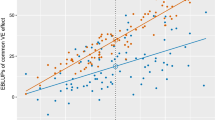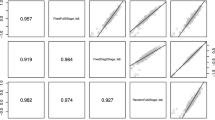Abstract
The tendency in procedures used in field trials of equalizing cultural measures for all varieties and the object to enhance the reliability of the results by laying out parallel plots, involves the danger that under the chosen circumstances a given variety does not show to full advantage. In equalizing the environment, insufficient account can be taken of the particular characters and demands of the different varieties. The actual differences that can be computed on the basis of many parallels may result in a repetition of errors from the standpoint of a general evaluation of varieties.
In practice a certain combination of circumstances hardly ever occurs a second time, which causes the figures obtained to have no general validity. The author, from his own experience, comes to the conclusion that in general a breeder should attach more value to variations in environment than to replications, especially in the first stages of the experiments. Since problems differ according to the crop concerned, no generalization should be made.
Similar content being viewed by others
References
Dorst, J. C., Moet de kweker ter beoordeling van nieuwe rassen zijn kracht zoeken in variëren van omstandigheden of in herhalingen? Landbouwkundig Tijdschrift 58 (1946): 457–464.
Survey of wheat growing districts. New Zealand Wheat Review 45/46. Wheat Research Institute. Publication 42 (1945): 18–24.
Author information
Authors and Affiliations
Rights and permissions
About this article
Cite this article
Dorst, J.C. Use of variation or replications in breeding work. Euphytica 7, 111–118 (1958). https://doi.org/10.1007/BF00035723
Received:
Issue Date:
DOI: https://doi.org/10.1007/BF00035723




